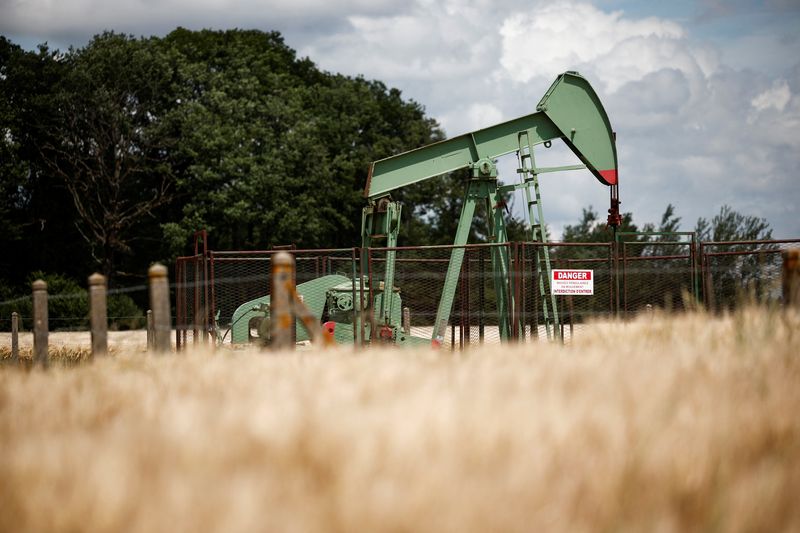Oil steadies ahead of US jobs report
By Robert Harvey
LONDON (Reuters) - Oil prices held their ground on Friday as investors awaited U.S. employment data, but the commodity was on track for a weekly loss despite a delay to supply increases by OPEC+ producers.
Brent crude futures rose 37 cents, or 0.51%, to $73.06 a barrel by 0958 GMT. U.S. West Texas Intermediate crude futures were up 33 cents, or 0.48%, at $69.48.
For the week, Brent was poised to register a more than 7% decline while WTI was heading for a drop of almost 6%.
U.S. non-farm payrolls data is due at 1230 GMT. After a week of mixed signals on the U.S. economy, the jobs data is expected to be key to the size of any U.S. interest rate cut at the Federal Reserve's next policy meeting over Sept. 17-18.
U.S. service sector activity was steady in August, but private jobs growth slowed, remaining consistent with an easing labour market.
Memories of the early-August sell-off across global markets kept investors wary of the risk that U.S. labour conditions could present a surprise downside, said IG market strategist Yeap Jun Rong.
On Thursday, Brent settled at its lowest since June 2023 as worries about U.S. and Chinese demand offset support from a big withdrawal from U.S. oil inventories and Thursday's decision by OPEC+ to delay planned oil output increases.
Crude stockpiles fell by 6.9 million barrels to 418.3 million barrels, compared with a projected decline of 993,000 barrels in a Reuters poll of analysts.
"Chinese and US economic concerns, the diminishing ability of the (OPEC+) producer group to influence the oil market, and its ample spare capacity ... imply that further weakness is very much possible and upside potential is more limited than a month ago," said PVM analyst Tamas Varga.
Signals that Libya's rival factions could be closer to an agreement to end the dispute that has halted the country's oil exports also pressured oil prices this week.
Exports remain mostly shut in but some loadings have been permitted from storage.
Bank of America lowered its Brent price forecast for the second half of 2024 to $75 a barrel from almost $90 previously, it said in a note on Friday, citing building global inventories, weaker demand growth and OPEC+ spare production capacity.
Source: Investing.com
